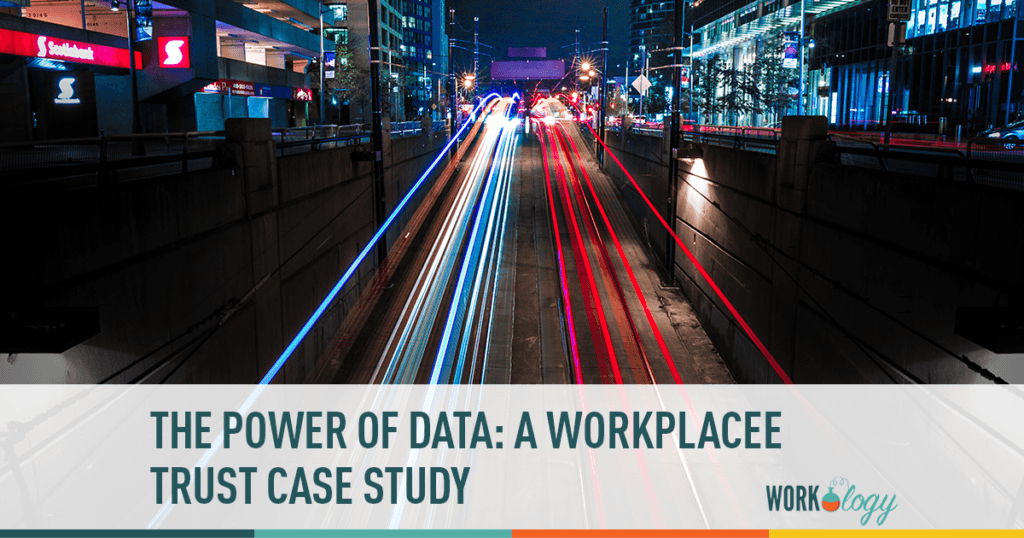Do your employees trust you? Do your employees believe you listen to what they have to say? These are critical questions that leadership needs to understand.
Workplace Trust Case Study
ACME company hired us to study their organizational effectiveness over a two week period. This is a company that is successful in its industry and its leadership team views employees as an essential part of future success and growth. We mapped out the ACME employee experience and researched how their employees work together towards common goals and objectives.
During the study, employees had to respond to the question: “Do you trust management to listen to your feedback?” to which they responded yes, no or not sure. Let’s deconstruct employee responses to illustrate the power of Workrise analysis.
Here is the distribution of employee responses:
- Yes – 77.42%
- Not sure – 12.90%
- No – 9.68%
At first glance, the data above looks pretty good and the leadership team would be satisfied. Most executives would leave things there. But there is a significant benefit to digging deeper and asking the following questions:
- What is the exact makeup of 77.42%?
- Why are 22.58% of employees saying “No” and “Not sure”?
For us, the next step is to map the responses against the organizational structure, to analyze outliers and correlations for further investigation. It is through this deeper research that we gain the greatest insight into the organization. We ask tough questions such as are employees who responded “No” more or less likely to report that their workload is too high or too low? Or are they having a hard time working with colleagues?
Digging Deeper Into Your Organization’s Employee Survey Data
As well, it is valuable to look for differences between demographic groups. At ACME, where there is an even split between men and women, we found that women represented 75% of the “Not Sure” and 66% of the “No”. What pushed women to take a more negative stand towards management? Digging deeper, the data showed that most of these women had been with the company for more than 10 years. It is not uncommon that long-tenure employees are less engaged and become more apathetic or cynical over time. Meanwhile, numerous academic studies have found that “individuals with longer organizational tenures tend to achieve higher levels of performance” (Engage your long-time employees to improve performance – James Harter – March 2015). So time may have come for ACME to work towards re-engaging their long-tenure employees. As you can see, there are clear benefits to drilling deeper into the organizational data.
As the next step in our analysis, we map employee responses to feelings / emotional states. Our platform utilizes two different indexes to illustrate the emotional state of people: the NetAffect and the U-Index. The NetAffect is the average of positive moods minus the average of negative moods. The U-Index is the proportion of time employees spend in an “unpleasant” or “undesirable” mood. Dr. Kahneman and Dr. Krueger qualify the overall mood of an employee as “unpleasant” or “undesirable” when he/she is engaged in an activity in which the dominant mood/emotion is negative.
Understanding Employee Trust
At ACME, we found that employees who responded “Yes” to our initial question, did not necessarily have a higher NetAffect average. Similarly, employees who responded “No” or “Not sure” did not necessarily have a lower NetAffect average. What was striking was the makeup of the 77.42%. A significant percentage of employees spent a relatively high percentage of time in an unpleasant mood (U-Index) warranting further investigation. Indeed, trust in management to listen to feedback doesn’t guarantee a positive employee experience from the employee’s standpoint. In other words, as managers in a company, we feel better to know that our employees trust us to listen to them, but we cannot assume that this necessarily matters to them and that it is always a relevant data point indicating that they will stick with us. Oppositely, you can have a more unexpected situation, i.e. when people who do not trust you to listen to your feedback stay with the company, which is the case of the women mentioned above…
Data is powerful and can be interpreted in a variety of ways. It is important to step back and look at the data from different angles to ensure you are not overlooking key issues or jumping to conclusions.
If one wants to measure employee experience, one has to look at how employees live and work, as well as understand how they feel throughout the day. This data can then be used for rich analysis towards making the workplace smarter.









